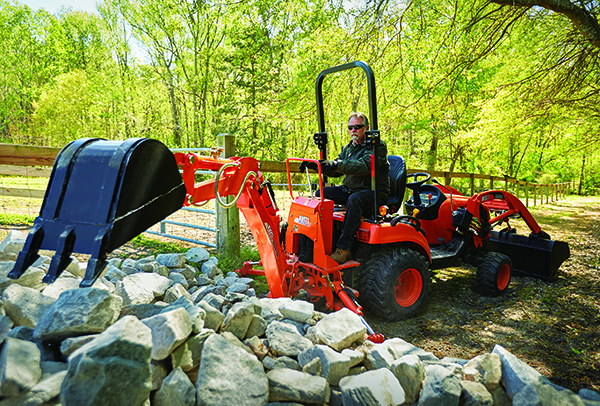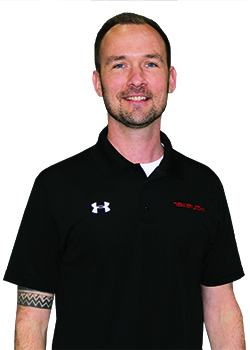
or leasing, it’s important to consider how often a machine will be used. (Photo: Kioti)
The challenge: Determining whether to buy, rent or lease compact tractors/wheel loaders.

John Deere Financial
Angie Harms
Tactical marketing planner for John Deere Financial
DO focus on two key factors when adding a compact tractor to a fleet: type of machine and how to pay for it. DO consider horsepower, hitch life capacity, property type and desired implements when deciding to add a compact tractor to a fleet. Equipment use and finances determine if it is best to buy, rent or lease. DO improve your cash flow throughout the year with a lease. On the other hand, buying doesn’t restrict hours or damage because the business owns the machine. DON’T forget to weigh the pros and cons. Renting is a good solution if the machine isn’t needed on a regular basis. However, if the machine will be used often, it is better to buy or lease.

Multione America
Bill Grundy
National sales manager
DO match the machine to the requirements of the intended tasks. With a compact articulating loader, one can carry heavier materials without damaging sensitive surfaces. DO consider the specifications and versatility of the machine, matching attachments that make you more productive. DO demo and operate the machine to ensure it maneuvers and performs the tasks demanded. Make an informed decision prior to purchase. DON’T try to lift more or operate the unit in situations that it’s not intended for. Know the capability of your machine and keep the weight and load low to the ground and under control as much as possible.

Kubota Compact Tractors
Kelcey Cockrell
Product marketing specialist
DO rent a compact tractor for applications when the machine is only needed once or very rarely. DO buy or lease if you plan to utilize the tractor often. Landscape contractors can lease a compact tractor for tax purposes or buy the machine, which is typically more advantageous in terms of return on investment. DON’T forget to shop at your local dealerships. Choose a dealership and a brand that you can rely on for parts, service and overall quality.

Kioti
Joel Hicks
Senior product support manager
DO consider what services you offer and how often you’ll need a compact tractor and attachments. DO consider how many hours you’ll put on the machine annually. DO remember, renting means the equipment may not be available when you need it. When you buy, warranties can help with equipment when needed. DO consider the potential of trading in the machine for newer equipment upon lease completion. DO annually assess your equipment needs and make the best decision for you and your team. DON’T forget, with a lease, you’ll likely be restricted by hours of use.

Takeuchi-US
Lee Padgett
Product manager
DO look at lease and purchase plans; a few rentals may equal the cost of a lease. DO think about whether you can cross-use a compact wheel loader in areas where you may normally use a compact track loader or a skid-steer loader, saving the cost of having two machines. DO consider the offseason and if you can repurpose the compact wheel loader for applications other than landscaping, like snow removal. DO think about whether buying a compact wheel loader could open up new opportunities for your business. DON’T purchase or lease if your business only requires one occasionally. DON’T forget, there may be additional equipment to buy in order to transport the machine.

